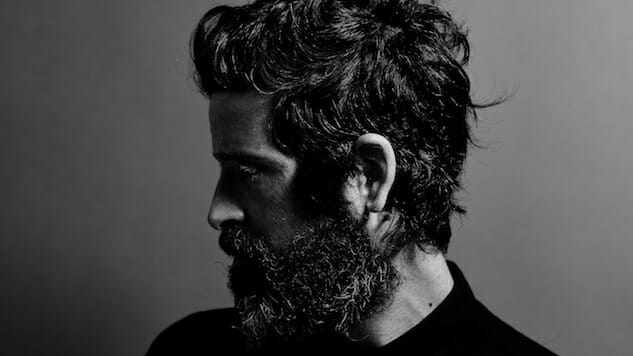Motherhood and the Venezuelan Conflict Are at the Center of Devendra Banhart’s Ma
The folk troubadour returns with his most serious—and most gorgeous—album yet
Photo by Lauren Dukoff
When beginning work on his newest album, Devendra Banhart wanted to write a few songs from an insect’s perspective. It wouldn’t have been completely out of character for the Venezuelan-American songwriter, who’s frequently been referred to as one of the leading figures in the “freak folk” movement of the 2000s, to explore how good it must feel to sit on a petal. He’s assumed an animal’s persona before—just listen to “Duck People Duck Man,” from his Megapuss side project from 2008.
“I’ll pay anything to Oculus Rift, to get a program where I could be a fly on a huge lily, this expansive petal,” Banhart tells Paste. “So I had this plan—‘yeah, I’ll write a song about that, imagining me from that perspective,’—but there was no real room or time for it because Venezuela is as much on my mind and the theme was so clear that it was going to be this celebration of maternity, it was going to be this record saying ‘thank you’ to music as a maternal presence in my life.”
His mind usually drifts towards the most surreal places one could imagine (he mentions writing from the perspective of “a socialite or an alligator with a protracted anus”). But after trips to Kyoto, Japan and Caracas, Venezuela—where he spent the formative years of his childhood and where his brother and many other family members still live—he knew this album would be different from the ones he’s written in the past. He had to be more concise than ever before, even if that unfortunately meant, “There just wasn’t room to write some silly song pretending I’m a flea that lives on head cheese under the Eiffel Tower.”
“The situation [in Venezuela] is so dire, so heavy, so apocalyptic that there wasn’t even room to almost make up a character or write a song from this particular perspective,” he explains, later adding, “The world is starting to pay attention to something that’s been a part of my life since I was born. The reason that it started to become part of the record so dramatically before it was an article in the New York Times and before the situation had been brought to the attention of the world is because before I started writing the record, I went to Caracas and I saw firsthand what it’s like to be in a dictatorship that’s not running well, that’s not functioning. Lines and lines of people waiting for hours and hours to go get a loaf of bread—they’re real. People not having to pay with money that’s counted, but weighed. The tension and the sense of repression and the sense of paranoia and the sense of your energy being sucked out of you—this void, black hole kind of feeling.”
Both his insider and outsider perspectives on the situation inform virtually every song on Ma, out on September 13. “I saw you gently weep and now I wanna be a lion / Curled up at your feet / Something to rely on,” he sings on “Ami.” But he can’t really help whatsoever—the Venezuelan government isn’t allowing aid to enter its borders. That’s not to say Banhart hasn’t tried, though. Since there aren’t any accessible charities on the ground, he recently played a show to raise money, which he passed to his aunt via a cousin to donate medicine to a children’s hospital. The police tried to confiscate it.
“They’re not evil, they’re thinking, ‘Maybe I could sell this and feed my family,’” he says.
That frame of mind explains why on “Kantori Ongaku,” he sings, “Well the older I get the less I fear anyone I see / And yet all the more I fear humanity.”
-

-

-

-

-

-

-

-

-

-

-

-

-

-

-

-

-

-

-

-

-

-

-

-

-

-

-

-

-

-

-

-

-

-

-

-

-

-

-

-








































